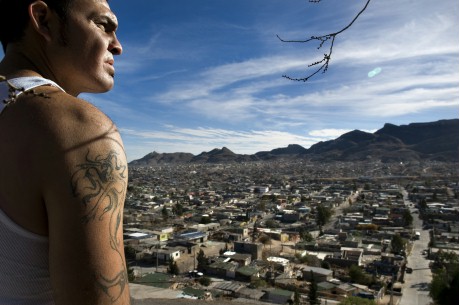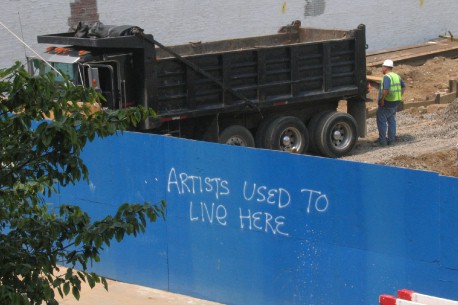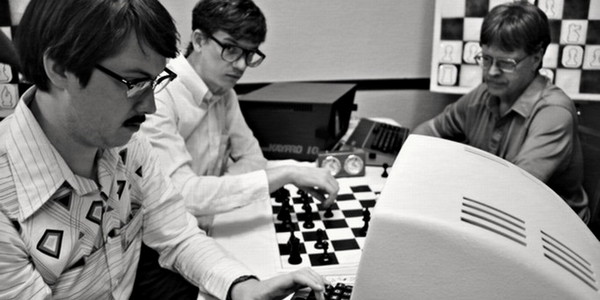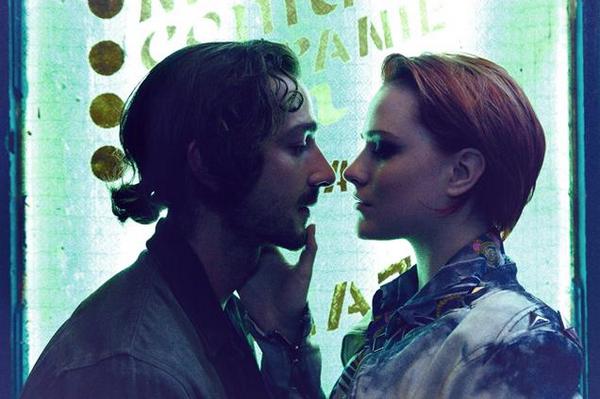
From Sundance to Berlin to the Public
Look hard at the Berlin International Film Festival, and you will see where many of these films premiered – the Sundance Film Festival. No surprise – Sundance begins the year, and festivals build upon each other.There’s another thing worth noting. If a film is shown at Sundance, and then in Berlin, you might even get a chance to see it in a theater. Let’s hope so. Here are some to watch.

Narco Cultura — Where Pop Music Turns Murderers into Heroes
Narco Cultura – Shaul Schwarz — did you ever think there was a connection between the glorification of bloodshed in corrido songs from northern Mexico, which are boasts about killing? Somehow I imagine that the statistics on those correlations are incomplete, but the songs make killing cool. Shaul Schwarz follows a young singer-sonwriter who writes corridos to order, in the same way as the bootmaker who puts snakeskin on those killers. In a parallel narrative, the film looks at cops investigating the drug traffic in Juarez. By the end of the film, most of the cops in the unit have been murdered.
Narco Cultura confronts an enormity of killing that risks numbing those who write about it. Shaul Schwarz’s doc is cinematic for a novice director – somehow its empathy feels underdeveloped.

Family Entertainment Escapes from the Marketing Department
Escape from Tomorrow – Randy Moore – A surprise revelation at Sundance, Escape from Tomorrow was shot mostly in Disney theme parks in Florida and California. A family man with a wife and two children gets a call that he’s lost his job. How to you respond to that tragedy? They spend the day at the park. It’s a walk into the hell of family entertainment. Mauschwitz has rarely been so violated.
With cameras operated openly, as they are by most of the thousands of tourists visiting Disney parks, Moore and his team tell the story of a family coming apart, with psychic disintegration framed with the ruling icons of the Disney brand. Children are out at risk. Spouses cheat. Some sites are even dynamited.
Escape from Tomorrow, which played at the European Film market in the Berlinale, is said to be destined for the New Directors/New Films festival at Lincoln Center and the Museum of Modern Art. Will MoMA dare to challenge Disney? Expect a shocked public if the film plays in New York, and boost in visits to destinations that seem far less boring in Randy Moore’s film that they were when I last visited.
Salma – Kim Longinotto – As the trials of the Delhi rapists approach and crowds dance in denunciation of the abuse of women, Salma tells the story of a woman who emerged from decades of servitude – in spite of that servitude – as a major Tamil poet in southern India.

Happy Now, After Years of Mistreatment — Salma
Longinotto traveled to Salma’s village, which hasn’t changed much, and retraces the journey that began when the baby girl was rejected by her father, who wanted a boy, and continued with confinement to a room with barred windows in her parents’s house once she reached puberty, and then shifted to restriction to the house of the family of a man whom she was tricked into marrying. This shocking film feels like a remake of the Book of Job sometimes. Just as remarkable is Salma’s sweet personality, given the chilling honest of her work and the testimony of men in her village who haven’t learned a thing over the years. Several arranged weddings of girls to older men make you wince.
Gut Renovation – Su Friedrich – Willamsburg becomes Condoburg in Su Friedrich’s five-year observation of Williamsburg’s transformation of the neighborhood — which she and other artists made livable — into an overbuilt mass of overpriced apartments. “Welcome to the neighborhood, you’re ruining it,” Friedrich says to the new arrivals. There is a bare-boned aesthetic to this no-budget diary that makes you think of the early days of public access television.

Williamsburg Is Now Condoburg
Small businesses are priced out of the place. So are the artists who gave it the allure in the first place. Friedrich hurls her anger at anyone carrying a cappuccino, but the real din comes from construction noise that doesn’t stop. Once again, the 1 per cent stays on top.
Computer Chess – Andrew Bujalski – This period film might be considered the revenge of the nerds, but all the characters are nerds here. It’s a black and white look at a chess competition in the early 1980’s when computers were bulky and noisy and computer nerds made chess nerds look hip.

Computer Chess — It Wasn’t Always Cool
Think of this film as an allegory about technology – and about independent film. If there were any justice, the production design would win awards. Gerald Peary the film critic is in one of the starring roles of this no-budget tour de force. It’s probably too subtle for the audience, but don’t miss it.
The Necessary Death of Charlie Countryman – Fredrik Bond – here’s my review from Screen at Sundance of the film that was in competition in Berlin — it’s reassuring that the German critics also trashed it….

Best Hair, Meet Best Accent
Shot in Bucharest, The Necessary Death Of Charlie Countryman is a disjointed odyssey and not a rousing commercial for its lead actor, Shia LaBeouf. The film, a first feature by commercials maker Fredrik Bond, is an overwrought parable that will test the loyalty of LaBeouf’s fans.
Deploying every cliché about Romania (Dracula’s accent seems to have been the standard for dialogue), the film insults one of its obvious markets. Interest outside the US and Romania will depend on the Labeouf mystique, although Mads Mikkelsen in the role of a violent thug could help the film in Europe.
Despite that, the film’s comic-book exoticism and relentless violence could still fuel a cult following for Charlie Countryman, with the right promotion.
The saga opens with the upended mutilated body of young Charlie Countryman (LaBeouf) on a rope – one of many Christ references. The narrative goes back in time to the bizarre wish of Charlie’s dying mother (Melissa Leo) that he visit Bucharest. As an avuncular voice-over by John Hurt tries to tell us what all this means, Charlie’s adventures unfold – a voluble Rumanian man dies in the seat next to him on the plane; police arrest Charlie when his plane lands: the dead man’s anguished daughter, Gabi (Evan Rachel Wood), has a violent sadistic ex, Nigel (Mads Mikkelsen), who wants to kill Charlie; two Brits at a hostel take Charlie to a sex club. The trail of adventures and violence crawls through the Rumanian capital.
Bond, directing a script that Matt Drake based on his experiences teaching school there, presents the picaresque episodes like a series of long commercials. To say that the result is incoherent is like saying that Romania is struggling with financial problems. It’s not even clear why LaBeouf’s character is called Charlie Countryman.
This is a film filled with paradoxes. Bespeaking confidence (and the flair of a displaced wise guy from early Scorsese), LeBeouf’s long dark hair is slicked back. Yet he’s no tough guy. Charlie is a punching bag for anyone who wants to hit him, and in this film Romania is a country of hit men and enforcers, many of whom wear uniforms.
Strains of magic realism suggest that coherence is not what Bond is after. Ultimately, The Necessary Death Of Charlie Countryman is a love story, with LeBeouf either running after Gabi, the tortured soul, or running from Nigel, the torturer. Cinematographer Roman Vasyanov (who shot the stylish 2008 Russian teen musical Hipsters) captures the young star, with long locks bouncing as he runs, in shots with more improbable angles than a Nike ad. The music – throbbing in a sex club, pounding in scenes of pursuit, moaning in atmospheric “Romanian” moments – substitutes for the momentum that’s often absent.
Production values are high, with tactile filming reminiscent of Danny Boyle’s Trainspotting and logistically deft chases turn the Bucharest subway into a futuristic battleground. Yet the script has a cryptic laughable sententiousness that isn’t always meant to be funny. Romanian fatalism is explained on the plane to Bucharest in American terms – the country is the East European version of a baseball team of perennial losers, the Chicago Cubs: “It is problem that makes us who we are, same as Cubbies.”
Threats in accented whispers promise a range of horrible deaths. “You’re like a wind of shit in my life,” Gabi tells Charlie, trying to get rid of him for his own good. Perhaps she was thinking of the misfortune of a Brit whom Charlie encounters who takes a dose of potent Rumanian Viagra. Like this film, the promise of adventure and fun in an exotic land seemed like a good idea, but the result was an uncomfortable jolt.
